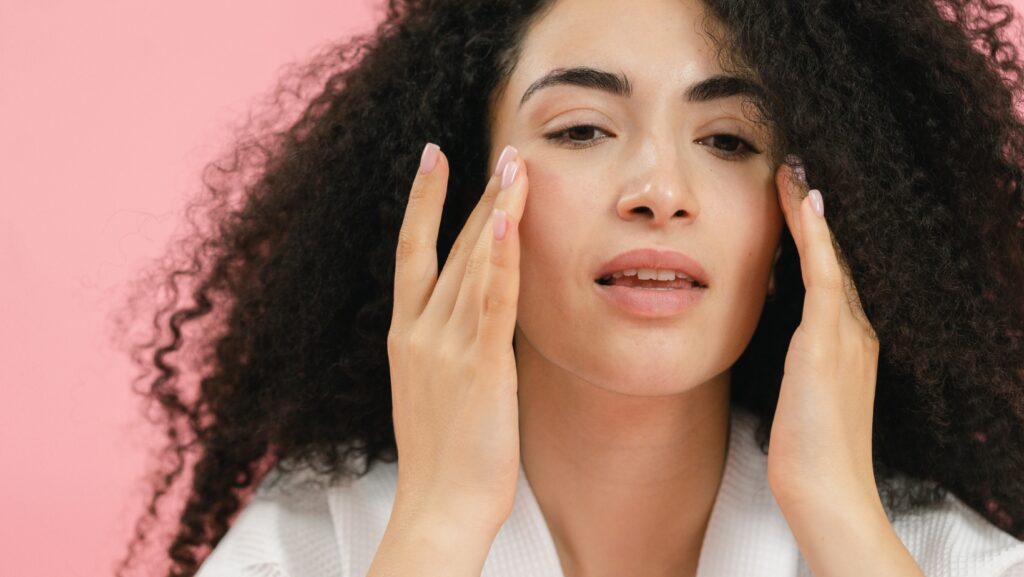
Skin Deep: Everyday Habits for Radiant, Healthy Skin
Healthy, glowing skin isn’t just about the products you apply—it’s about the habits you cultivate every day. While genetics play a role, your daily routine has a significant impact on how your skin looks and feels. From hydration and nutrition to protecting your skin from environmental damage, the secret to a radiant complexion lies in simple, consistent practices.
The Foundation of Radiant Skin
Your skin is your body’s largest organ, and like every other part of you, it thrives on hydration. Drinking plenty of water helps maintain elasticity, reduces the appearance of fine lines, and supports the skin’s natural detoxification process. Dehydration can make your skin look dull, dry, and prone to irritation, so keeping your water intake consistent is key.
Hydration doesn’t stop at drinking water. Eating water-rich foods like cucumbers, watermelon, and oranges can further boost your skin’s moisture levels. Additionally, using a hydrating moisturizer that locks in moisture is essential for maintaining a plump and youthful complexion. Ingredients like hyaluronic acid and glycerin help attract and retain moisture, ensuring your skin stays supple throughout the day. For tailored skincare advice and treatment options, consulting a consultant dermatologist can make a significant difference in achieving optimal skin hydration.
Feeding Your Skin from the Inside Out
What you put on your plate is just as important as what you put on your skin. It is important to invest in yourself and maintain a diet rich in antioxidants, vitamins, and healthy fats that can significantly improve skin health. Omega-3 fatty acids, found in foods like salmon, walnuts, and flaxseeds, help maintain the skin’s lipid barrier, which keeps it hydrated and resilient.

Vitamins C and E are powerful antioxidants that protect the skin from free radical damage, which can lead to premature aging. Citrus fruits, bell peppers, almonds, and sunflower seeds are excellent sources of these nutrients. Zinc, found in nuts and legumes, also plays a crucial role in skin healing and reducing inflammation. By nourishing your body with the right foods, you provide your skin with the essential building blocks it needs to stay healthy and glowing.
Your First Line of Defense
One of the most important skincare habits is daily sun protection. Ultraviolet (UV) rays can cause premature aging, hyperpigmentation, and even skin cancer. Sunscreen should be a non-negotiable part of your morning routine, even on cloudy days. A broad-spectrum SPF 30 or higher protects against both UVA and UVB rays, preventing long-term damage.
For optimal protection, apply sunscreen to all exposed areas of your skin, including your neck, hands, and ears. Reapplying every two hours, especially when outdoors, ensures continuous coverage. Sunscreen isn’t just for sunny days—UV rays penetrate windows and can still affect your skin when you’re indoors. Making SPF a daily habit is one of the simplest yet most effective ways to maintain youthful, healthy skin.
A Natural Solution for Inflammation and Sensitivity
CBD (cannabidiol) has emerged as a promising ingredient in skincare thanks to its potential anti-inflammatory and calming properties. The skin has its own endocannabinoid system, which plays a role in regulating oil production, inflammation, and overall skin balance. CBD interacts with this system, making it a beneficial option for those struggling with redness, irritation, or acne-prone skin.
While CBD is well known, other cannabinoids like CBC (cannabichromene) and CBG (cannabigerol) are gaining recognition in the skincare industry. CBC is believed to have potent anti-inflammatory and antibacterial properties, making it potentially beneficial for acne-prone skin. It works by reducing sebum production and calming irritated skin, helping to prevent breakouts.

CBG, on the other hand, is known for its antioxidant and skin-soothing properties. Some studies suggest that CBG may help combat oxidative stress, which contributes to aging and skin damage. If using cannabinoid-based products for your skin sounds interesting, be sure you understand the basics ranging from how to use the products to the difference between CBC vs. CBG before making a purchasing decision.
Establishing a Consistent Skincare Routine
The key to healthy skin isn’t an extensive routine with dozens of products—it’s about consistency. A basic skincare regimen should include:
Cleansing – Removes dirt, oil, and impurities from the skin. Choose a gentle cleanser that doesn’t strip the skin’s natural oils.
Toning – Helps balance the skin’s pH and prepares it for the next steps. Alcohol-free toners with soothing ingredients like rose water or witch hazel are great choices.
Moisturizing – Hydrates and protects the skin barrier. Even oily skin benefits from lightweight, non-comedogenic moisturizers.
Facials – While not needed daily, incorporating regular facials—either at home or professionally—can deeply cleanse, exfoliate, and rejuvenate the skin, enhancing the benefits of your daily routine.
Sun Protection – As mentioned earlier, SPF is crucial for preventing premature aging and damage. If you want to try a product that helps tackle all of these, check out methylene blue tallow balm.
Lifestyle Habits That Boost Skin Health
Beyond skincare, lifestyle habits play a major role in how your skin looks and feels. Stress, lack of sleep, and poor diet can all contribute to dullness, breakouts, and premature aging. Getting 7-9 hours of quality sleep each night allows your skin to repair and regenerate. Regular exercise boosts circulation, delivering oxygen and nutrients to skin cells while promoting collagen production.
Managing stress is also crucial—high cortisol levels can trigger breakouts and worsen existing skin conditions. Mindfulness practices like yoga, meditation, or even deep breathing exercises can help keep stress levels in check. Cutting back on smoking and excessive alcohol consumption also supports skin health by reducing inflammation and preventing dehydration.





